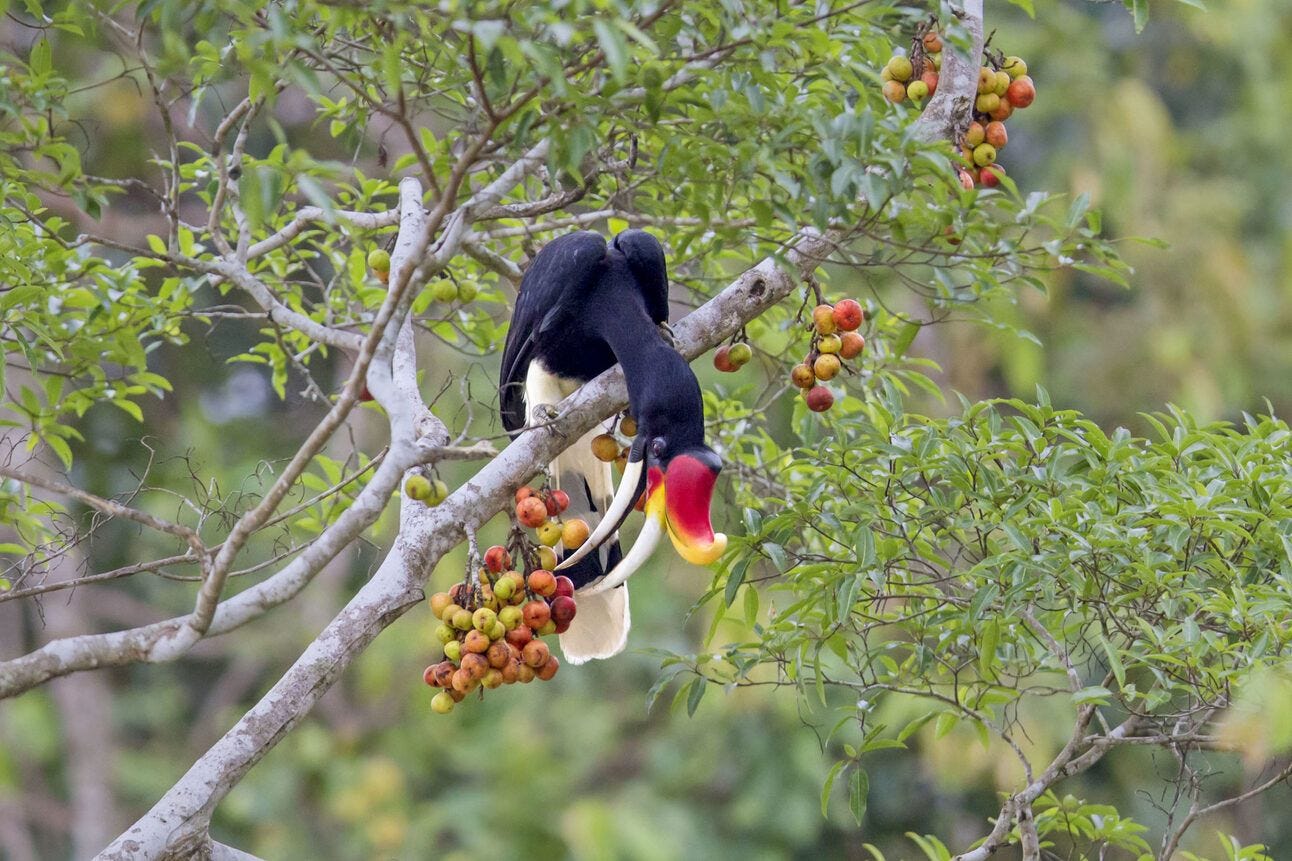Weekly Finds #39 - February, 2nd, 2024
Sharing some of the interesting things I've gathered over the course of the week.
📖 Read
Use Strategic Thinking to Create the Life You Want
The article from Harvard Business Review introduces a concept called "Strategize Your Life," drawing parallels between corporate strategy projects and crafting a meaningful life. It suggests a process beginning with defining one's idea of a great life, establishing purpose and vision, and evaluating the current allocation of time and energy in various life aspects. Drawing from research on finding meaning and joy, the process includes identifying necessary changes and ensuring commitment to objectives and key results. Highlighting that the program has been tested with over 500 people globally, the article asserts that individuals can develop a personal life strategy summarized on a single page with a few hours of work.
🙉 Overheard
Good advice helps you find the solution to your problem. Great advice helps you find you were solving the wrong problem.
- Merlin Mann
👯♂️ Friends of Culture Curated
This week, we have a bonus post from Food Jungle, where our friend Gregory Zenin writes about what’s happening in the food industry. Be sure to subscribe and stay up-to-date on this storied industry's good, bad, and ugly news.
Saving Animals with Figs
Malaysian wildlife veterinarian, Zainal Zainuddin, has one goal: restore and protect wildlife systems using fig trees in northern Malaysian Borneo.
Through his NGO - Bringing Back Our Rare Animals (“BORA”) - Zainal produces fig trees for forest restoration and to enrich wildlife habitats on palm tree plantations and in logged forest reserves.
But why figs? It turns out that fig trees are remarkably resilient and can survive in heavily deforested areas, such as some parts of Borneo.
Not only that, but they can grow year-round and are food sources for orangutans, gibbons, fruit bats, dozens of bird species, and MANY more animals.
Essentially, the fig tree can encourage natural reforestation ALL WHILE palm trees can still be planted!
While Zainal and BORA have made steady progress, they are yet to convince the WHOLE Malaysian palm oil industry. But until then, they’ve got our vote. Food Jungle approved ✅
🎧 Listen
A couple of items from this week’s Music Curated issue.
I mix it up here and share various music with my readers, so you’ll see something different each week. You may be into some of what I share, and you may not be into other things, and that’s okay. My goal is to share the things I enjoy and I hope to introduce my audience to something they might not have otherwise heard, and I hope some of it also resonates with you.
Song: Portishead - Roads
Hailing from Bristol, England, Portishead emerged in 1991 as a captivating trio featuring Beth Gibbons' haunting vocals, Geoff Barrow's versatile production, and Adrian Utley's skillful guitar work. Their debut, "Dummy" (1994), skillfully blended hip-hop beats with cinematic atmospheres, marking a pioneering moment in the trip-hop genre. While the band resisted the trip-hop label on subsequent releases like "Portishead" (1997) and "Third" (2008), they continued to captivate audiences with their distinctive sound. Check out the track “Roads”, one of my favorites from their debut.
Album: Portishead - Roseland NYC Live
Celebrating 25 years since its iconic release on November 2, 1998, Portishead's mesmerizing live album, "Roseland NYC Live," featuring a 28-piece orchestra, is back with an expanded edition. Remastered and enriched with gems like “Undenied,” “Numb,” and the full-length rendition of “Western Eyes,” this release captures the anticipation of unveiling new tunes before the second album's launch, reflecting the band's meticulous orchestration and the unforgettable setting of New York's now-vanished Roseland Ballroom.
🔗 Random Finds
How a nonlinear workday might help you get more done
Escape the 9-to-5 routine. Embrace a nonlinear workday, syncing with your energy peaks for optimal productivity. Breaks are vital—step away, breathe, stretch. Nonlinear days suit remote work and output-focused cultures. In rigid environments, align with energy cycles, prioritize breaks, and enhance satisfaction and performance.
The Deep Sea
Another fun one from Neal Agarwal and Neal.Fun. Explore what lives down in the depths of the deep sea.
Over 1,000 Characters
🍲 🍹 Eat & Drink
Pork and Red Chili Pozole with Cabbage
Elevate your pozole game with a twist. While not the traditional version, this stew-style pozole is a flavor-packed adventure. Amped up with tomatillos for body and acidity, adding a cabbage companion for an irresistible texture. Customize it to your heart's content—more spice, different meats, and play with the chilies. Garnish with a mountain of cabbage, radish coins, and lime for that authentic pozole experience. Feeling daring? Spice it up with cumin or swap pork for chicken. Make it brothier, thicker, or cook up a double batch. Your pozole, your rules!
The Best 3 Ingredient Cocktails
Mastering cocktails made easy. Impress your guests or that special someone with these ten classic drinks that only need THREE ingredients each. No mixology degree is required—just a dash of enthusiasm. Shake up the timeless Old Fashioned, the refreshing Daiquiri, or the iconic Negroni effortlessly at home. Simplify mixology and elevate your bartending game.
🧒 Kiddos
My kids thought this was fascinating and wanted to share it with you all.
Who created the alphabet?
The alphabet we use, called the Latin alphabet, was created by many people over thousands of years. Letters are like symbols that represent sounds in a language. The first alphabet was invented in ancient Egypt over 5,000 years ago and was called "hieroglyphs." These symbols were used to record religious texts, but they were detailed and slow to write. Eventually, people in Phoenicia, around modern-day Syria, Lebanon, and Israel, simplified the alphabet and spread it around the Mediterranean Sea. The Greeks added vowels to the alphabet, and the Romans adapted it to create the Latin alphabet, which we use today. Over time, languages change, and our alphabet might change too.
Even the order of the alphabet was decided by people to make it easier to learn and share. The alphabet was incomplete at first, and letters like "J" were added later. The alphabet has adapted over the centuries as languages and cultures interacted. It might change again in the future as our world becomes more connected and languages mix. So, the alphabet is a fascinating creation that evolved with the help of many people over a long time.









